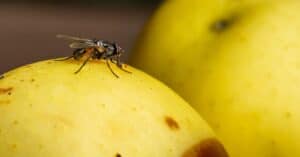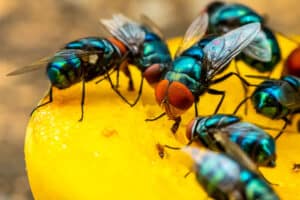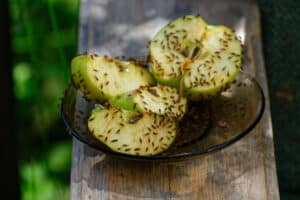Flies and the great outdoors just go together, especially in the summer. Outside of sitting with a fly swatter in your hand, how can you get rid of flies naturally? One of the best ways to get rid of flies outside is to eliminate the scents that attract them. Things like garbage and animal waste draw flies. Getting rid of those can make a noticeable difference. Enlisting the help of animals that eat flies, like birds, bats, and toads can help, too. And of course, some plants naturally repel flies from buzzing around your space. Here are some of the most effective deterrents and ways to get rid of flies outside naturally.
Add Some Aromatic Flowers
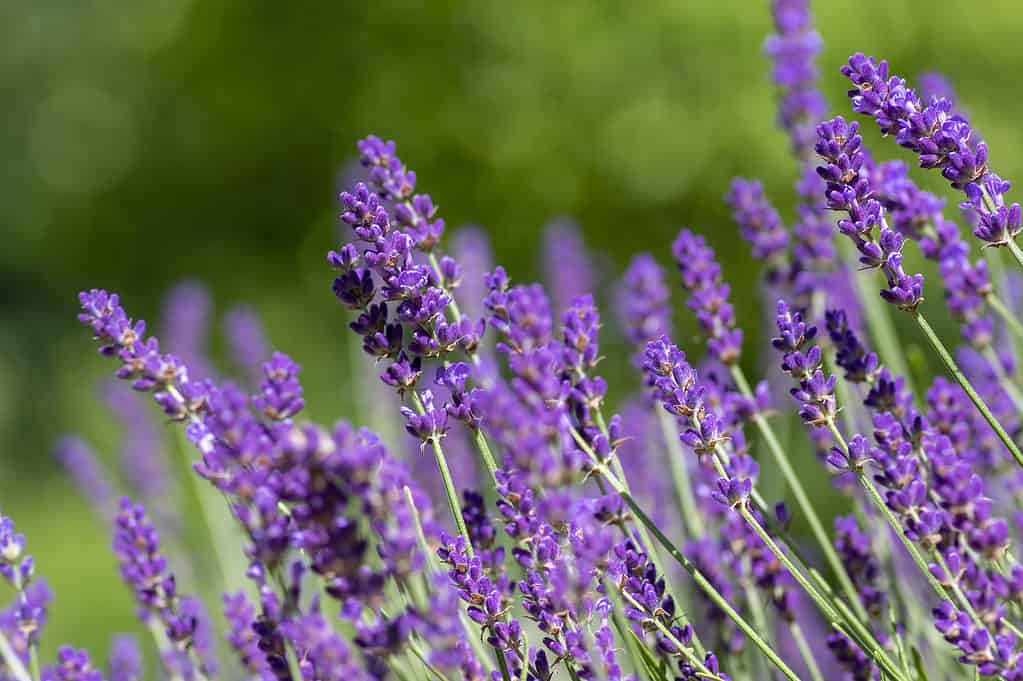
Aromatic plants such as lavender may help to get rid of flies in your outdoor spaces.
©iStock.com/Iva Vagnerova
An array of different flowers, including lavender, marigolds, and chrysanthemums may help you get rid of flies outside naturally. Try planting these colorful and aromatic flowers around your patio, porch, or other sitting areas. You can plant them in the ground or in pots. Flowers like these have oils that produce scents that flies do not like. Most humans find the scents at least tolerable, if not pleasant. However, do take note that heavily scented flowers, including the ones mentioned above, can sometimes cause allergic reactions or exacerbate asthma and respiratory issues in certain people.
Plant an Herb Garden
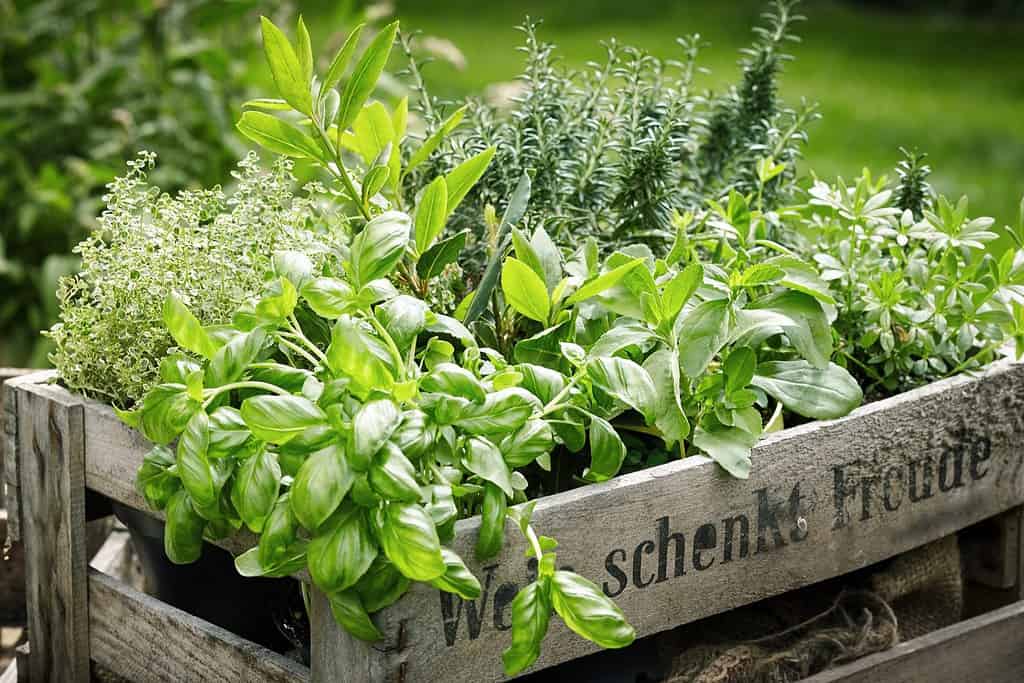
You can plant a variety of herbs that repel flies in containers around your outdoor space.
©stockcreations/Shutterstock.com
Several types of herbs also tend to repel flies. You can plant herbs in containers to help get rid of flies in outside seating areas. A few common herbs that flies dislike include sage, rosemary, basil, and mint. These herbs not only make pretty potted plants, but they also provide excellent fresh ingredients for your kitchen. Consider adding several containers of aromatic herbs to your garden or your patio to help fend off pesky flies.
Consider Planting Lemongrass
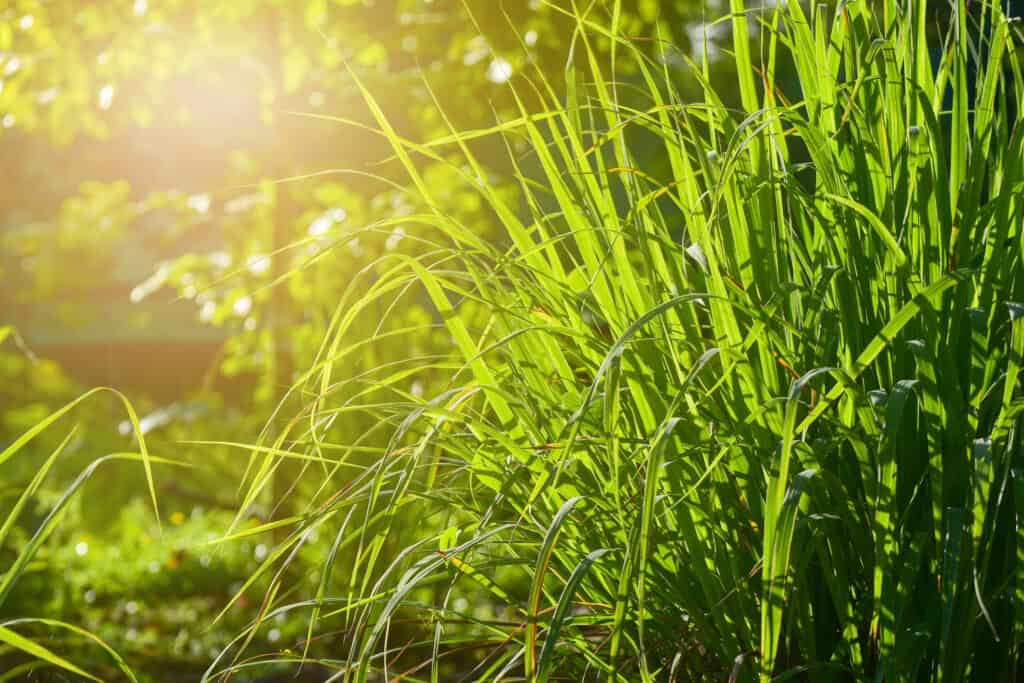
Lemongrass can repel flies with its strong citrus scent.
©iStock.com/ATP-Photographer
Lemongrass makes a pretty border plant. It can also be combined with blooming flowers to make attractive container arrangements. This plant can survive in the garden year-round in warmer climates. However, it must be brought indoors in the winter in cold areas. Flies tend to avoid lemongrass because it produces a pungent oil that smells strongly of citrus. Most people find the smell of lemongrass pleasant or at least tolerable. It can, however, cause irritation or an increase in symptoms for people with asthma.
Eucalyptus Also Repels Flies
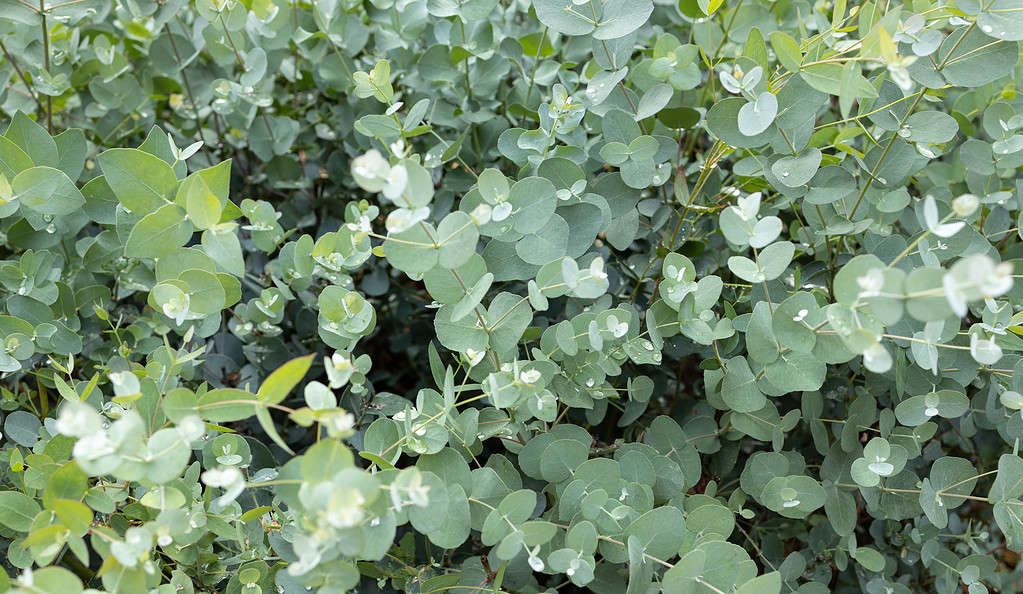
Fresh eucalyptus produces oils that flies tend to avoid.
©Andres Victorero/ via Getty Images
Eucalyptus is another common plant that can help get rid of flies naturally. You can find eucalyptus in many different varieties, some more cold hardy than others. The plants grow very quickly and make attractive ornamental additions to the garden. They produce lots of aromatic oil that flies detest. They can also cause problems for people with asthma and allergies, so take that into consideration when planting.
Attract Birds That Eat Flies
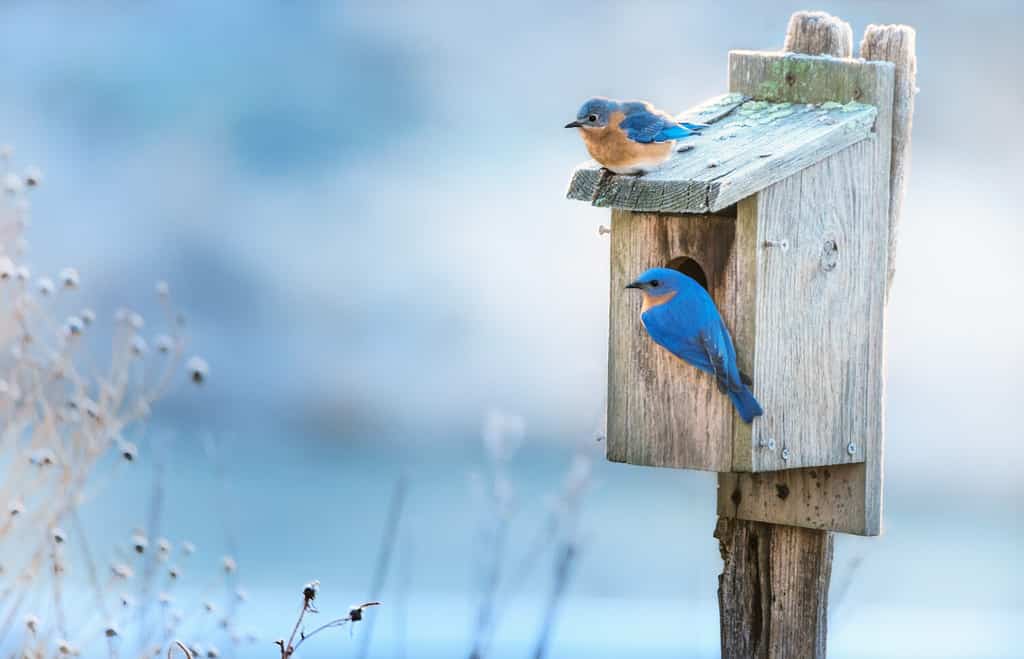
Bluebirds and other species that eat flies can help you keep their numbers down.
©Heather L. Hubbard/Shutterstock.com
One of the best ways to get rid of flies naturally is to bring in lots of their natural predators. Many different birds, such as flycatchers, purple martins, and bluebirds, eat flies in large quantities. So do bats. Consider putting up bird feeders, bird houses, and nesting boxes for the types of birds that you want to attract. You could even put up bat houses in hopes of attracting some nocturnal predators to your area. Make sure if you put out water sources, you change the water regularly to keep it clean and free of insect larvae.
Eliminate Animal Waste

Picking up your pet’s waste quickly can help prevent flies from multiplying.
©Victoria Rak/Shutterstock.com
Animal waste draws flies like powerful magnets. If you don’t want to be surrounded by these pests, get out there and pick up the poop! Not only do flies love the smell of feces, but they also lay their eggs in it. So, if you don’t clean up the animal waste in your yard you will soon be dealing with many, many more flies as the eggs hatch, larvae grow, and flies emerge by the thousands.
Clean and Dispose of Garbage
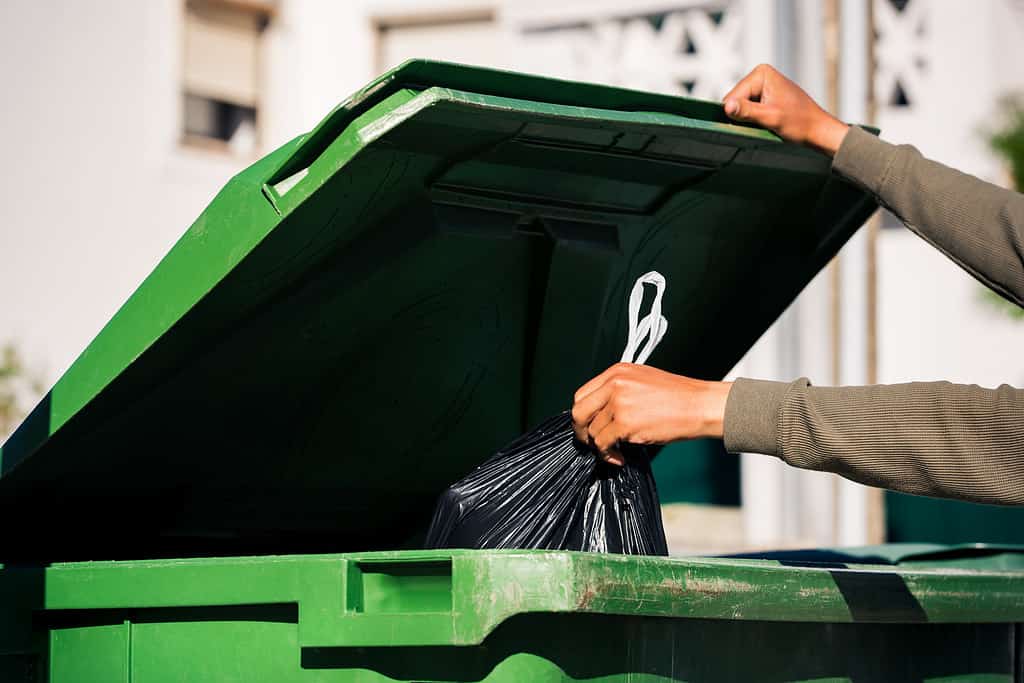
Make sure to place garbage in containers that flies cannot access.
©Daria Kulkova/iStock via Getty Images
Much like animal waste, the smells of garbage bring in all sorts of pests. Flies eat garbage and lay their eggs in it. You should not leave garbage lying about. When you clean it up, make sure to put the garbage in sealed containers that prevent flies from getting to it. Remember, the best way to get rid of flies is to prevent them from multiplying. Keeping your outdoor areas clean and free of scents that attract flies will pay off in noticeable ways.
The photo featured at the top of this post is © AvishekS/Shutterstock.com
Thank you for reading! Have some feedback for us? Contact the AZ Animals editorial team.



